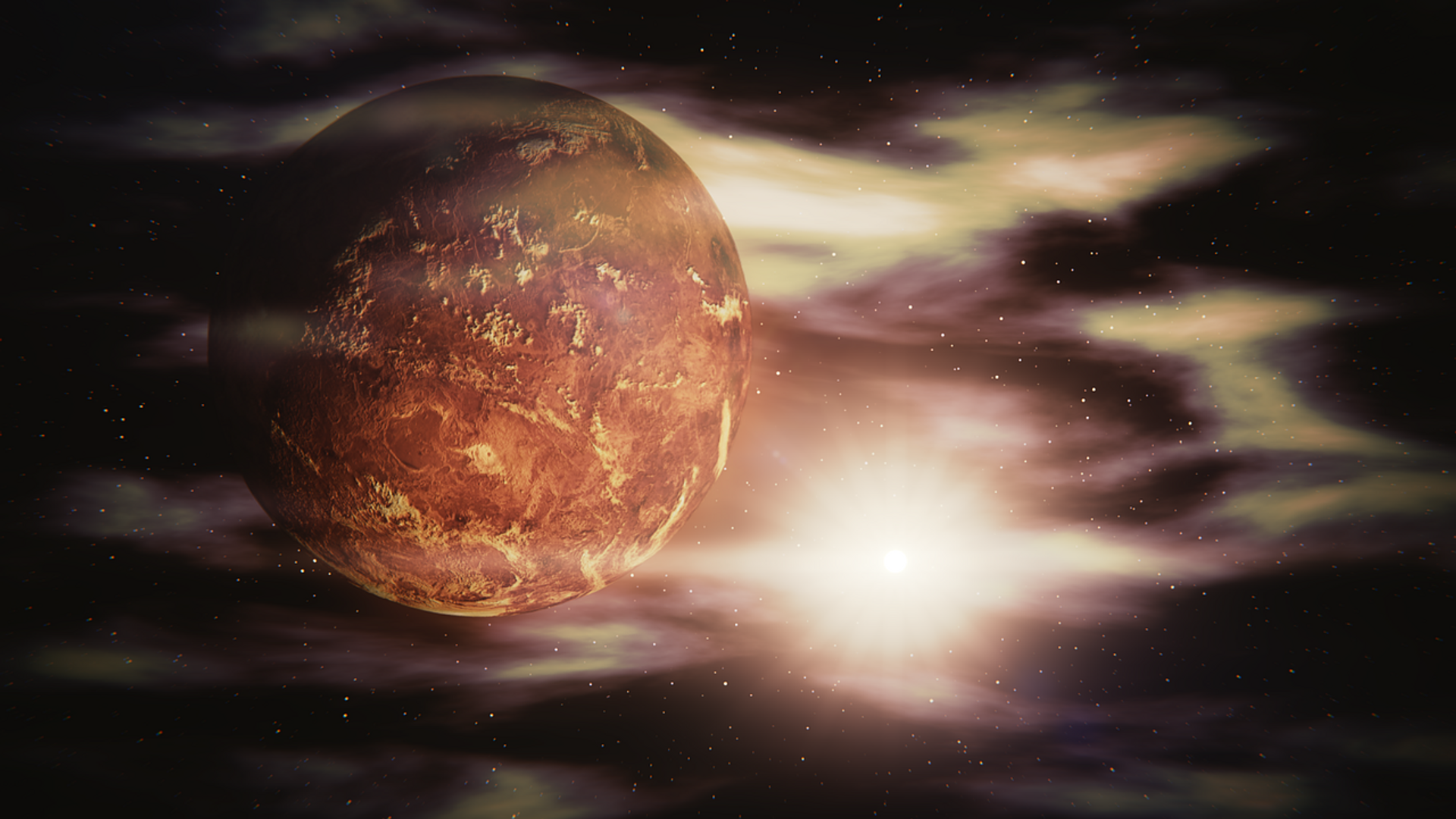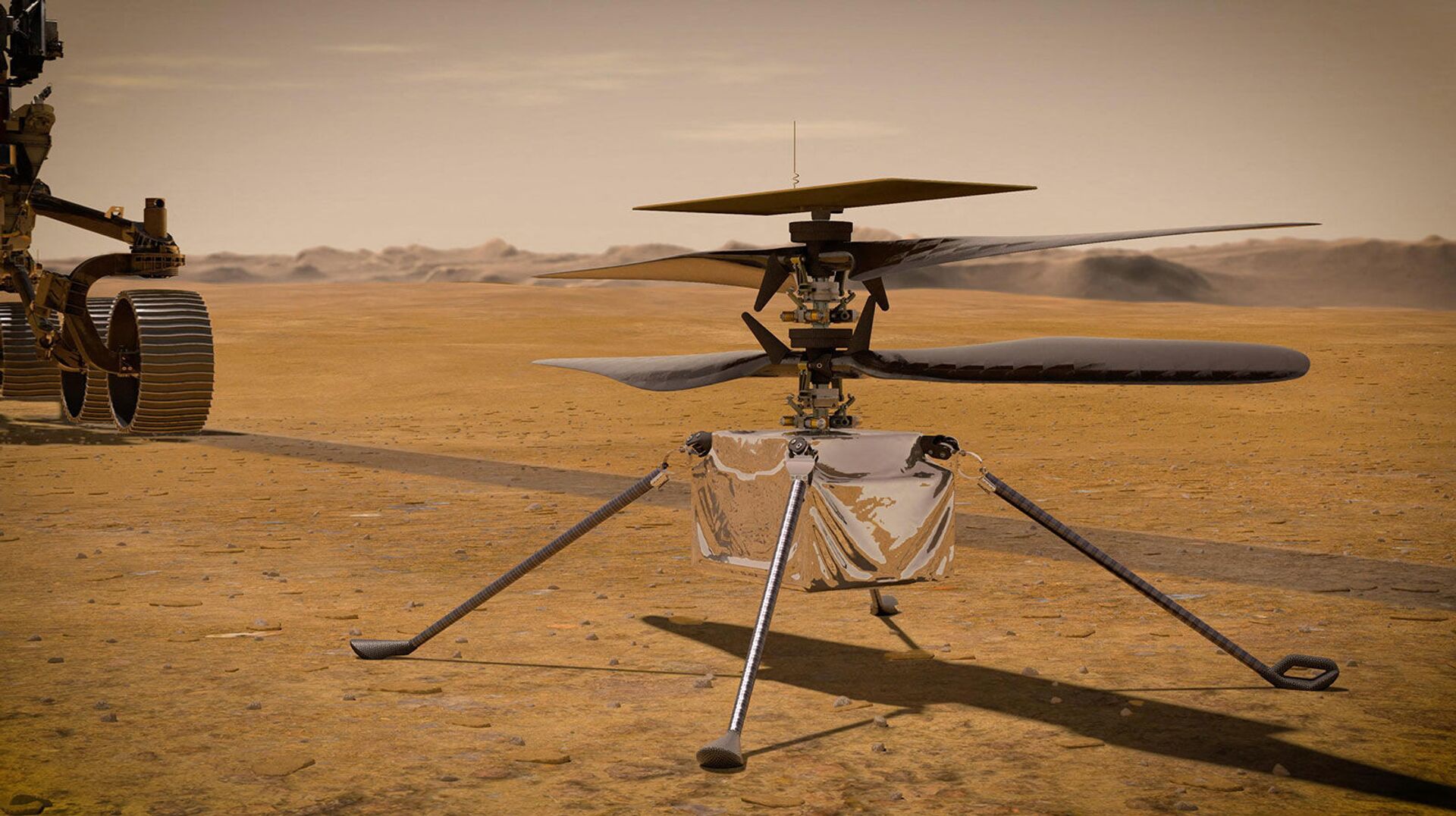https://sputnikglobe.com/20210709/attention-sky-gazers-venus-mars-and-crescent-moon-to-align-in-triple-conjunction-in-coming-days-1083345137.html
Attention Sky Gazers! Venus, Mars and Crescent Moon to Align in 'Triple Conjunction' in Coming Days
Attention Sky Gazers! Venus, Mars and Crescent Moon to Align in 'Triple Conjunction' in Coming Days
Sputnik International
Although this celestial event will be visible to the naked eye, tracking Mars will be trickier as it will be around 200 times dimmer. Interestingly, this event... 09.07.2021, Sputnik International
2021-07-09T10:17+0000
2021-07-09T10:17+0000
2022-11-30T10:10+0000
newsfeed
world
venus
astronomy
moon
mars
https://cdn1.img.sputnikglobe.com/img/107687/01/1076870163_0:0:1280:720_1920x0_80_0_0_e32978927bc37ea7874195b7137a734c.png
A "triple" treat for all the sky gazers out there is coming up next week, as the planets of love and war are about to “meet” with the bonus of a super-slim crescent Moon. The celestial event, called a ‘planetary conjunction’, will be visible to the naked eye and it will be one of the sky-gazing highlights of the year.The "triple Conjunction" will take place on July 12 and July 13 and surprisingly, Mars and Venus will appear to be just 0.5º from each other from Earth on July 13. Interestingly, this is also the first of three "planetary conjunctions" that will be happening in the coming months, as two similar mergers will take place on both February 12 and March 12, 2022.On Thursday, the Indian Institute of Astrophysics (IIA) took to Twitter to share a post revealing details of this event. IIA also informed that the sky gazers can witness the event every evening from 8 July till July 13.However, this mesmerising event will only be visible in the western sky or horizon after sunset on a clear sky. Moreover, people who will continue to watch even after the event will also be able to capture the departure of these planets. Meanwhile, the enthusiasts can also use ordinary binoculars to observe Venus and Mars at their closest points more clearly.
mars
Sputnik International
feedback@sputniknews.com
+74956456601
MIA „Rossiya Segodnya“
2021
Sushmita Panda
https://cdn1.img.sputnikglobe.com/img/07e5/05/12/1082926186_0:0:2048:2048_100x100_80_0_0_4474d0d7e27a36878eb8727832be74b4.jpg
Sushmita Panda
https://cdn1.img.sputnikglobe.com/img/07e5/05/12/1082926186_0:0:2048:2048_100x100_80_0_0_4474d0d7e27a36878eb8727832be74b4.jpg
News
en_EN
Sputnik International
feedback@sputniknews.com
+74956456601
MIA „Rossiya Segodnya“
Sputnik International
feedback@sputniknews.com
+74956456601
MIA „Rossiya Segodnya“
Sushmita Panda
https://cdn1.img.sputnikglobe.com/img/07e5/05/12/1082926186_0:0:2048:2048_100x100_80_0_0_4474d0d7e27a36878eb8727832be74b4.jpg
newsfeed, venus, astronomy, moon, mars
newsfeed, venus, astronomy, moon, mars
Attention Sky Gazers! Venus, Mars and Crescent Moon to Align in 'Triple Conjunction' in Coming Days
10:17 GMT 09.07.2021 (Updated: 10:10 GMT 30.11.2022) Although this celestial event will be visible to the naked eye, tracking Mars will be trickier as it will be around 200 times dimmer. Interestingly, this event also provides a great chance to witness the Moon at its slimmest and Venus at its brightest.
A "triple" treat for all the sky gazers out there is coming up next week, as the planets of love and war are about to “meet” with the bonus of a super-slim crescent Moon. The celestial event, called a ‘planetary conjunction’, will be visible to the naked eye and it will be one of the sky-gazing highlights of the year.
The "triple Conjunction" will take place on July 12 and July 13 and surprisingly,
Mars and Venus will appear to be just 0.5º from each other from Earth on July 13. Interestingly, this is also the first of three "planetary conjunctions" that will be happening in the coming months, as two similar mergers will take place on both February 12 and March 12, 2022.
On Thursday, the Indian Institute of Astrophysics (IIA) took to Twitter to share a post revealing details of this event. IIA also informed that the sky gazers can witness the event every evening from 8 July till July 13.
However, this mesmerising event will only be visible in the western sky or horizon after sunset on a clear sky. Moreover, people who will continue to watch even after the event will also be able to capture the departure of these planets. Meanwhile, the enthusiasts can also use ordinary binoculars to observe
Venus and Mars at their closest points more clearly.




